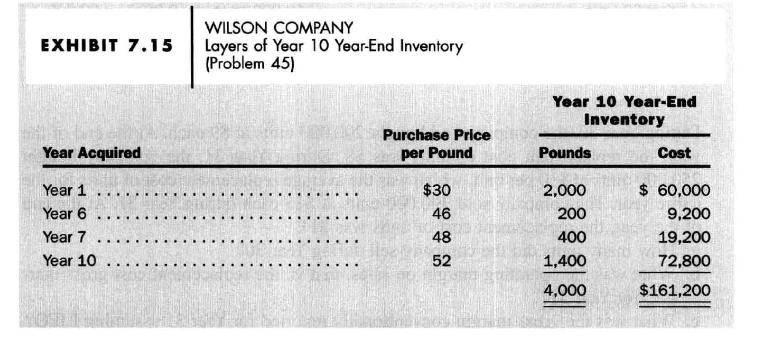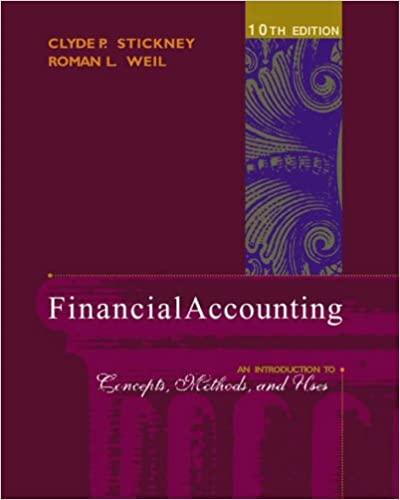LIFO layers influence purchasing behavior and provide opportunity for income manipulation. Wilson Company sells chemical compounds made
Question:
LIFO layers influence purchasing behavior and provide opportunity for income manipulation. Wilson Company sells chemical compounds made from expensium. The company has used a LIFO inventory flow assumption for many years. The inventory of expensium on December 31, Year 10, comprised 4,000 pounds from Year 1 through Year 10 at prices ranging from \(\$ 30\) to \(\$ 52\) per pound. Exhibit 7.15 shows the layers of Year 10 ending inventory.

Expensium costs \(\$ 62\) per pound during Year 11, but the purchasing agent expects its price to fall back to \(\$ 52\) per pound in Year 12. Sales for Year 11 require 7,000 pounds of expensium. Wilson Company wants to carry a stock of 4,000 pounds of inventory. The purchasing agent suggests that the firm decrease the inventory of expensium from 4,000 to 600 pounds by the end of Year 11 and replenish it to the desired level of 4,000 pounds early in Year 12 .
The controller argues that such a policy would be foolish. If the firm allows inventories to decrease to 600 pounds, the cost of goods sold will be extraordinarily low (because Wilson will consume older LIFO layers) and income taxes will be extraordinarily high. The controller suggests that the firm plan Year 11 purchases to maintain an end-of-year inventory of 4,000 pounds.
Assume that sales for Year 11 do require 7,000 pounds of expensium, that the prices for Year 11 and Year 12 are as forecast, and that the income tax rate for Wilson Company is 40 percent.
a. Calculate the cost of goods sold and the end-of-year LIFO inventory for Year 11, assuming that the firm follows the controller's advice and that inventory at the end of Year 11 is 4,000 pounds.
b. Calculate the cost of goods sold and the end-of-year LIFO inventory for Year 11, assuming that the firm follows the purchasing agent's advice and that inventory at the end of Year 11 is 600 pounds.
c. Assume the firm follows the controller's, not the purchasing agent's, advice. Calculate the tax savings for Year 11 and the extra cash costs for inventory.
d. What should Wilson Company do?
e. Management of Wilson Company wants to know what discretion it has to vary income for Year 11 by planning its purchases of expensium. If the firm follows the controller's policy, aftertax income for Year 11 will be \(\$ 50,000\). What is the range, after taxes, of income that the firm can achieve by the purposeful management of expensium purchases?
Step by Step Answer:

Financial Accounting An Introduction To Concepts Methods And Uses
ISBN: 9780324183511
10th Edition
Authors: Clyde P. Stickney, Roman L. Weil





